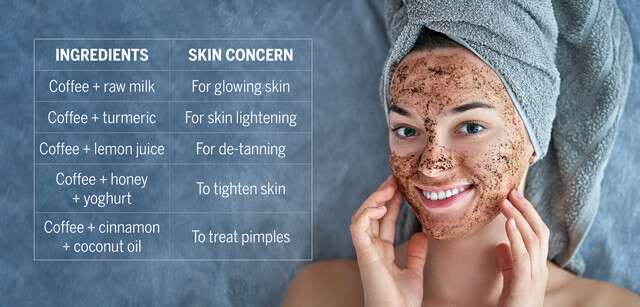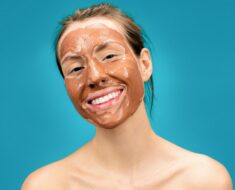Disadvantages of drinking coffee for skin – are you aware of how your morning brew might be affecting your complexion?
Coffee lovers often overlook the impact their favorite beverage can have on their skin. Let’s explore this further.
Coffee consumption can lead to dehydration, increased oil production, and heightened stress levels, all of which can negatively impact your skin.
Dr. Samantha Smith, a renowned dermatologist, notes that these factors can contribute to acne, dryness, and premature aging.
Curious to learn more about how your daily cup of coffee could be sabotaging your skin’s health?
Keep reading to uncover the surprising ways coffee affects your skin and discover tips for maintaining a radiant complexion.
Do coffee have Disadvantages
While coffee is enjoyed for its stimulating effects and rich flavor, it does have potential disadvantages.
Excessive consumption can lead to health issues such as insomnia, jitteriness, increased heart rate, and elevated blood pressure.

These effects are primarily due to caffeine, which is a central nervous system stimulant. Overconsumption can disrupt sleep patterns, leading to fatigue and decreased cognitive function over time.
Coffee’s acidic nature may also cause digestive issues, such as acid reflux and stomach discomfort, particularly in individuals with sensitive stomachs.
Additionally, dependence on caffeine can result in withdrawal symptoms like headaches, irritability, and fatigue when intake is reduced.
Moreover, coffee can interact negatively with certain medications and exacerbate conditions like anxiety and heart arrhythmias.
Pregnant women are advised to limit their caffeine intake, as high levels can increase the risk of complications.
Hence, moderation is key to enjoying coffee’s benefits while minimizing its drawbacks.
What are 3 disadvantages of coffee?
1. Negative Impact on Sleep Quality
One of the most significant disadvantages of coffee is its potential to disrupt sleep patterns.
Coffee contains caffeine, a powerful stimulant that can interfere with the body’s ability to fall and stay asleep.
Caffeine works by blocking adenosine receptors in the brain, a neurotransmitter that promotes relaxation and sleepiness. By inhibiting adenosine, caffeine increases alertness and can delay the onset of sleep.
Consuming coffee, especially in the late afternoon or evening, can lead to difficulty falling asleep, reduced sleep duration, and a decrease in the quality of sleep.
Poor sleep quality can have far-reaching consequences on overall health. It can impair cognitive function, leading to problems with memory, concentration, and decision-making.
Chronic sleep deprivation is also associated with an increased risk of various health issues, including obesity, diabetes, cardiovascular disease, and mood disorders such as anxiety and depression.
For individuals who are sensitive to caffeine or have trouble sleeping, it is recommended to limit coffee consumption to the morning hours to mitigate these adverse effects.
2. Digestive Problems
Coffee can exacerbate or contribute to various digestive issues, particularly for individuals with sensitive stomachs or pre-existing gastrointestinal conditions.
Coffee is acidic and can stimulate the production of stomach acid, which may lead to acid reflux or heartburn.
This is particularly problematic for those with gastroesophageal reflux disease (GERD), as the increased acidity can irritate the esophagus and worsen symptoms.
Additionally, coffee acts as a laxative by stimulating the muscles in the colon, which can lead to increased bowel movements and, in some cases, diarrhea.
For some people, this laxative effect is desirable, but for others, it can cause discomfort and inconvenience.
Furthermore, the compounds in coffee, such as caffeine and chlorogenic acids, can irritate the stomach lining, leading to gastritis, which is the inflammation of the stomach lining.
Symptoms of gastritis include stomach pain, nausea, vomiting, and indigestion.
To reduce the risk of digestive problems, individuals can try consuming coffee with food, choosing lower-acid coffee varieties, or limiting their intake.
It may also be helpful to avoid additives such as sugar and cream, which can further aggravate digestive issues.
3. Dependence and Withdrawal Symptoms
Regular consumption of coffee can lead to physical dependence on caffeine. When the body becomes accustomed to regular caffeine intake, it may develop a tolerance, requiring higher amounts of caffeine to achieve the same stimulating effects. Dependence on caffeine can result in withdrawal symptoms when coffee consumption is reduced or stopped abruptly. These symptoms can include headaches, fatigue, irritability, difficulty concentrating, and mood swings.
Caffeine withdrawal headaches are particularly common and can range from mild to severe. They typically begin within 12-24 hours after the last dose of caffeine and can last for several days. Fatigue and irritability during withdrawal can interfere with daily activities and overall quality of life.
Dependence on coffee can also affect mental health. The reliance on caffeine to enhance alertness and performance can create a psychological dependency, where individuals feel they cannot function optimally without their regular coffee intake. This can lead to anxiety about missing a dose and perpetuate a cycle of dependence.
To manage caffeine dependence, it is advisable to gradually reduce coffee consumption rather than quitting cold turkey. This gradual reduction can help mitigate withdrawal symptoms and make the transition smoother. Additionally, individuals can explore alternative beverages, such as herbal teas, that do not contain caffeine but still provide a comforting and enjoyable drinking experience.
Disadvantages of drinking coffee for skin (9 Disadvantages Reaveled)
Side effects of drinking coffee for skin
Drinking coffee can have several side effects on the skin. Its diuretic properties can lead to dehydration, making the skin dry, flaky, and less elastic.

This dehydration can also accelerate the appearance of fine lines and wrinkles, contributing to premature aging.
Additionally, caffeine increases cortisol levels, which can boost oil production and lead to acne breakouts, particularly in individuals with oily or acne-prone skin.
Coffee can also exacerbate existing skin conditions such as eczema, psoriasis, and rosacea, causing increased redness and irritation.
Poor sleep quality from caffeine consumption can impair the skin’s ability to repair itself, leading to dark circles and a tired appearance.
Furthermore, coffee can hinder collagen production, essential for maintaining skin’s firmness and elasticity, and interfere with the absorption of vital nutrients, resulting in dull, unhealthy skin.
Reducing coffee intake and ensuring adequate hydration can help mitigate these adverse effects on the skin.
Disadvantages of coffee on face
Coffee can negatively impact the skin on your face in several ways. Its diuretic nature can lead to dehydration, causing dryness, flakiness, and a dull appearance.
Increased cortisol levels from caffeine intake can stimulate excess oil production, leading to clogged pores and acne breakouts.
Coffee can also worsen existing skin conditions like eczema and rosacea, triggering redness and irritation.
Furthermore, caffeine can disrupt sleep patterns, which hampers the skin’s ability to repair and rejuvenate, resulting in dark circles and a fatigued look.
The reduction in collagen production due to caffeine can accelerate the development of fine lines and wrinkles, contributing to premature aging.
Additionally, coffee’s interference with nutrient absorption can deprive the skin of essential vitamins and minerals, leading to an unhealthy complexion.
To maintain healthy skin, it is advisable to moderate coffee consumption and stay adequately hydrated.
Disadvantages of black coffee for skin
Black coffee can negatively affect the skin in several ways. Its diuretic properties can lead to dehydration, making the skin appear dry, dull, and more prone to fine lines and wrinkles.
The caffeine in black coffee can increase cortisol levels, which in turn boosts oil production, potentially causing acne breakouts and clogged pores.
Here, is coffee bad for skin?
Furthermore, caffeine can interfere with sleep patterns, reducing the skin’s ability to repair and regenerate during rest, leading to dark circles and a tired appearance.
Black coffee can also exacerbate existing skin conditions such as eczema and rosacea, triggering increased redness and irritation.
Additionally, it can hinder collagen production, which is essential for maintaining skin elasticity and firmness, thereby accelerating the aging process.
To mitigate these effects, it’s advisable to consume black coffee in moderation, stay well-hydrated, and ensure a balanced diet to support overall skin health.
Can drinking too much coffee cause dry skin?
Yes, drinking too much coffee can cause dry skin. Coffee is a diuretic, which means it increases urine production and can lead to dehydration.
When the body loses more water than it takes in, skin hydration decreases, making it appear dry, flaky, and less supple.
Dehydrated skin lacks moisture and can become more sensitive, prone to irritation, and less resilient against environmental stressors.
Moreover, excessive caffeine intake can disrupt the skin’s natural oil balance.
Here, is drinking coffee good for white skin.
While caffeine stimulates oil production, the dehydration effect often outweighs this, leading to an overall decrease in skin moisture. Additionally, dehydration can accentuate the appearance of fine lines and wrinkles, making the skin look older.
To combat dry skin caused by coffee, it’s essential to drink plenty of water, limit coffee consumption, and use moisturizers to maintain skin hydration and health.
Balancing coffee intake with proper hydration can help mitigate its drying effects on the skin.
Is drinking coffee daily good for skin?
Drinking coffee daily can have both positive and negative effects on the skin, depending on various factors.
On the positive side, coffee contains antioxidants that can help protect the skin from free radical damage and reduce the risk of certain skin conditions like skin cancer.
Additionally, caffeine in coffee has been linked to improved blood circulation, which can give the skin a brighter and more refreshed appearance.
However, excessive coffee consumption or dependency can lead to dehydration, which can result in dry, dull skin and exacerbate the appearance of fine lines and wrinkles.
Here, st ives coffee scrub bad for skin.
Caffeine’s diuretic properties can also increase oil production, potentially leading to acne breakouts for some individuals.
Overall, moderate coffee consumption along with adequate hydration and a balanced skincare routine can offer some benefits to the skin.
It’s essential to pay attention to individual skin reactions and adjust coffee intake accordingly to maintain skin health.
Will my skin look better if I stop drinking coffee?
Can coffee cause pimples?
Coffee itself is not a direct cause of pimples, but certain aspects of coffee consumption can contribute to acne breakouts in some individuals.
One factor is the caffeine content in coffee, which can stimulate the adrenal glands to produce more cortisol, a stress hormone.
Elevated cortisol levels can lead to increased oil production in the skin, potentially clogging pores and promoting the development of acne.
Furthermore, additives commonly found in coffee, such as sugar, flavored syrups, and creamers, can also contribute to acne.
These additives can spike blood sugar levels and increase inflammation, both of which are linked to acne development.
Lastly, excessive coffee consumption leading to dehydration can affect skin health.
Dehydrated skin is more prone to irritation and inflammation, which can exacerbate existing acne or contribute to the formation of new pimples.
Overall, while coffee itself may not directly cause pimples, certain aspects of coffee consumption and its effects on the body can indirectly influence acne development in susceptible individuals.







